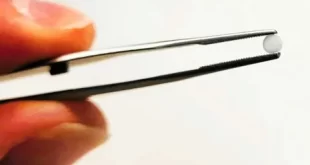Thinking of doing your PhD in the Life Sciences? The International PhD Programme (IPP) Mainz is offering talented students the chance to work at the cutting edge of research. As an IPP PhD student, you will join a community of exceptional scientists working on diverse topics ranging from how organisms age or how our DNA is repaired, to how epigenetics regulates cellular identity or neural memory.
Activities and responsibilities:
In the field of “Ageing & Disease”, the research group of Björn Clausen offers the following PhD project:
The oral mucosa represents a barrier tissue to the environment where the balance of immunity and tolerance is vital, as it is constantly exposed to pathogens and harmless foreign antigens, including commensals. A breakdown of this balance leads to dysbiosis resulting in periodontitis, an infection-induced inflammatory disease characterized by irreversible destruction of the tooth-supporting tissues including loss of the underlying bone. Moreover, it is considered a risk factor for life-threatening conditions such as cardiovascular disease. Dendritic cells (DC), including Langerhans cells (LC), have the unique capacity to promote both tolerogenic and inflammatory immune responses. Hence, in order to design effective therapeutic strategies to treat periodontitis and reduce the risk of developing comorbidities, it is essential to understand how DC in the oral mucosa maintain immune homeostasis.
PhD project: E-cadherin and β-catenin signaling in dendritic cells for the maintenance of immune homeostasis in the oral mucosa
One pathway that plays a crucial role in DC homeostasis and tolerance induction is E-cadherin/β-catenin signaling. The cell adhesion molecule E-cadherin is only expressed by LC and we recently showed that it is involved in the 2-step process of their differentiation in the oral mucosa. Notably, to what extent E-cadherin/β-catenin signaling regulates LC/DC homeostasis and function in the oral mucosa is not known. In pilot experiments, we analyzed the oral mucosa of transgenic mice lacking E-cadherin in CD11c+ cells (CD11c-EcadDEL) and observed an altered LC subset distribution and a dramatically changed morphology with more rounded cell bodies and fewer dendrites compared to controls. In the proposed project a detailed in vivo and in vitro analysis of CD11c-EcadDEL and β-catenin deficient (CD11c-βcatDEL) mice will be performed. First, we will assess LC and DC homeostasis, activation and migration in the different oral tissues by high-dimensional flow cytometry as well as the impact of CD11c-specific E-cadherin or β-catenin deletion on other immune cell populations. Moreover, we detected oral dysbiosis in our CD11c-EcadDEL mice and therefore, a detailed taxonomic microbiota analysis will be performed in this project. Since persistent microbial dysbiosis results in inflammation and subsequently alveolar bone loss, we will analyze the oral tissues of CD11c-EcadDEL and CD11c-βcatDEL mice for T cell infiltration and inflammatory cytokines. Bone loss will be monitored by micro computed tomography (µCT) scans. Finally, in different mouse models of periodontitis (P. gingivalis– and ligature-induced periodontal disease) we will interrogate the impact of E-cadherin/β-catenin signaling on LC/DC during infection and inflammation. Applying single-cell RNA sequencing the molecular pathways affected by E-cadherin/ β-catenin signals in oral mucosal LC/DC will be deciphered. Our expected findings may thus have important implications for designing improved LC/DC-based strategies for the treatment of periodontal disease.
If you are interested in this project, please select Clausen (DC) as your group preference in the IPP application platform.
What we offer:
- Exciting, interdisciplinary projects in a fully international environment, with English as our working language
- Advanced training in scientific techniques and professional skills
- Access to our state-of-the-art Core Facilities and their technical expertise
- Fully funded positions with financing until the completion of your thesis
- A lively community of more than 190 PhD students from 44 different countries
Requirements:
Are you an ambitious, young scientist looking to push the boundaries of science while interacting with colleagues from multiple disciplines and cultures? Then the IPP is your opportunity to give your scientific career a flying start!
All you need is:
- Master or equivalent
- Interactive personality & good command of English
- 2 letters of reference
For more details on the projects offered and how to apply via our online form, please visit https://www.imb.de/phd
The deadline for applications is 8 November 2023. Interviews will take place at IMB in Mainz on 22-24 January 2024.
Starting date: 1 March 2024 – 1 August 2024
Job Features
| Job Category | Doctorat |
 Etudes Non Stop Study Non Stop
Etudes Non Stop Study Non Stop



